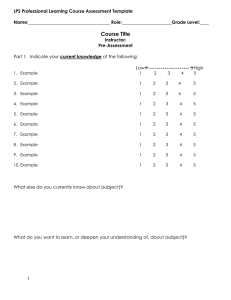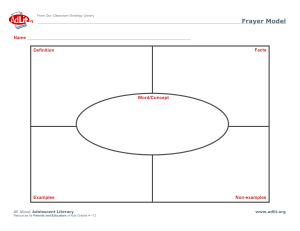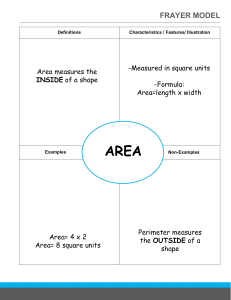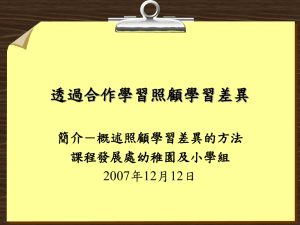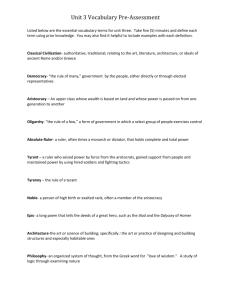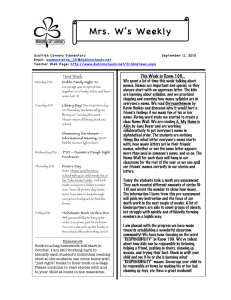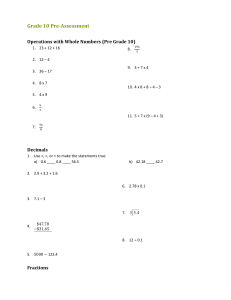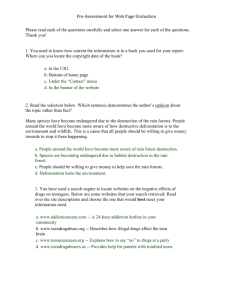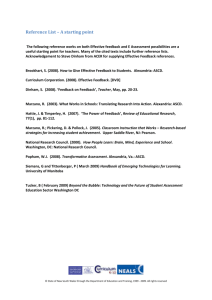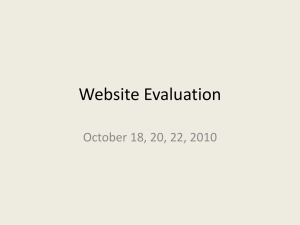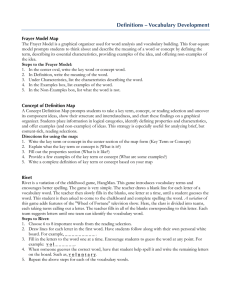DIFFERENTIATION TIP: PRE
advertisement
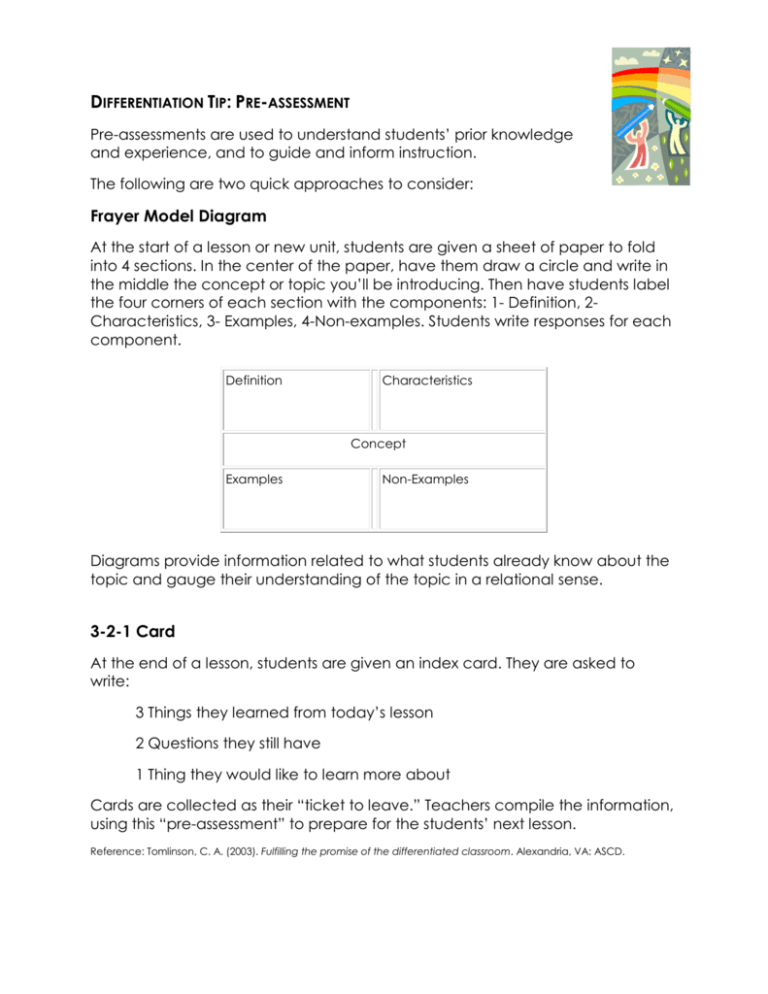
DIFFERENTIATION TIP: PRE-ASSESSMENT Pre-assessments are used to understand students’ prior knowledge and experience, and to guide and inform instruction. The following are two quick approaches to consider: Frayer Model Diagram At the start of a lesson or new unit, students are given a sheet of paper to fold into 4 sections. In the center of the paper, have them draw a circle and write in the middle the concept or topic you’ll be introducing. Then have students label the four corners of each section with the components: 1- Definition, 2Characteristics, 3- Examples, 4-Non-examples. Students write responses for each component. Definition Characteristics Concept Examples Non-Examples Diagrams provide information related to what students already know about the topic and gauge their understanding of the topic in a relational sense. 3-2-1 Card At the end of a lesson, students are given an index card. They are asked to write: 3 Things they learned from today’s lesson 2 Questions they still have 1 Thing they would like to learn more about Cards are collected as their “ticket to leave.” Teachers compile the information, using this “pre-assessment” to prepare for the students’ next lesson. Reference: Tomlinson, C. A. (2003). Fulfilling the promise of the differentiated classroom. Alexandria, VA: ASCD.
